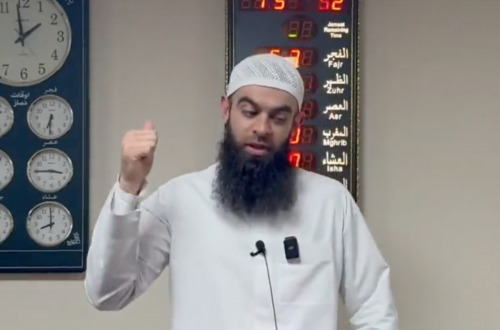The Today Programme this morning carried a news item suggesting that “Turkey’s Department of Religious Affairs has carried out a radical revision of the second most sacred text in Islam – the Hadith”.
I can’t find any other news report in English on this story, but here is an article from the Washington Post from 2006 which was written at the start of the process:
“Women are imperfect in intellect and religion.”
“The best of women are those who are like sheep.”
“If a woman doesn’t satisfy her husband’s desires, she should choose herself a place in hell.”
“If a husband’s body is covered with pus and his wife licks it clean, she still wouldn’t have paid her dues.”
“Your prayer will be invalid if a donkey, black dog or a woman passes in front of you.”
In a bold but little-noticed step toward reforming Islamic tradition, Turkey’s religious authorities recently declared that they will remove these statements, and more like them, from the hadiths — the non-Koranic commentary on the words and deeds of the prophet Muhammad.
Hadiths are serious stuff. More than 90 percent of the sharia (Islamic law) is based on them rather than the Koran, and the most infamous measures of the sharia — the killing of apostates, the seclusion of women, the ban on fine arts, the stoning of adulterers and many other violent punishments for sinful behavior — come from the hadiths and the commentaries built upon them. Eliminating these misogynistic statements from the hadiths is a direct challenge to some of the most controversial aspects of Islamic tradition.
Modern Muslim intellectuals have long argued that the hadiths should be revised, but this is the first time in recent history that a central Islamic authority has taken the dramatic step of deciding to edit them. The media and intellectuals of Ankara and Istanbul largely welcomed last month’s decision, which the Turkish government supported. And although there were rumblings of discontent from ultraconservative commentators, they didn’t amount to a protest. Yet, despite the rhetoric about the need to make alliances with progressive Islam in the midst of the fight against terrorism, Turkey’s move toward reform has been widely overlooked in the West, and there has been little acknowledgment of it in other Muslim countries.
The proposed revision came from the Diyanet, Turkey’s highest Islamic authority, which controls more than 76,000 mosques in Turkey and other parts of Europe. Its president, Ali Bardakoglu, a liberal theologian appointed three years ago by the ruling conservative Justice and Development Party (known as AKP), declared that a new collection of hadiths, free of such misogyny, would be prepared by 2008. He also announced that enlightened imams would be sent to the rural, conservative regions of southeastern Turkey to preach against practices such as honor killings.
…
These reform-minded Muslims are not secularists who want to do away with religion. On the contrary, they want to reinterpret Islam because they believe that its divinely ordained, humane and generous essence has been eclipsed by mortal man’s erroneous traditions and ideologies.
This reform doesn’t quite have the feel of a Vatican II moment. It couldn’t. Islam doesn’t have a central religious authority, akin to a Pontiff.
However, this isn’t window dressing. And, depending upon the extent of the reforms and the manner in which they are implemented, this could be a pretty revolutionary step. Turkey is a state which has, in effect, nationalised religion. At present, a moderate Islamist government is in government, and it has apparently decided to use its stewardship of the reins of power to enact a reform of the canon of religious texts.
I’d like to know more about the status, use, and content of the revised Hadiths; and about the reception that they receive.
However, this development is at the very least a promising one.


